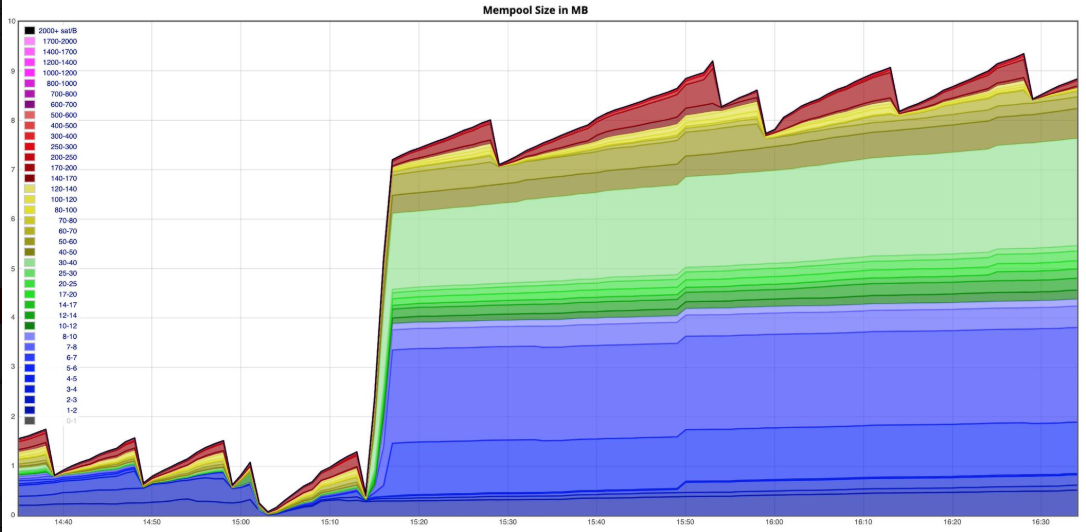Cryptocurrency trading platform BitMEX has hinted it will begin using Blockstream’s Liquid sidechain technology to reduce its impact on the Bitcoin mempool.
Bitrefill: BitMEX Should Reduce Fee Impact
As part of a social media discussion started by Bitrefill CEO Sergey Kotliar over how major exchanges create higher fees for Bitcoin users, staff said developers were “testing” solutions.
A huge volume platform, BitMEX has often seen controversy arise from its settlement activities due to the number of transactions it generates from bitcoin withdrawals and other processes.

The more transactions there are – especially if a large number are released onto the network at once – the more quickly transaction fees rise. As such, ‘spikes’ in the average fee rate for Bitcoin can cause problems for all those sending transactions for many hours afterwards.
Some major exchanges have already taken steps to reduce the number of outputs they generate and hence contribute less to the size of the mempool.
In particular, Segregated Witness (SegWit) technology saw good uptake through early 2018, with BitMEX now confirming it was seeking to implement it. It would also ‘batch’ transactions to create less work for the network, while suggesting off-chain settlements could also appear.
“We have SegWit in testing but it is bundled with some other backend upgrades to systems that will allow us to monitor many more addresses and rotate them more freely,” staff wrote.
It is our intention instead to reduce the space we occupy using SegWit & batching, and eliminate the need for some types of withdrawals entirely using Liquid.
Liquid Sidechain To the Rescue?
As Bitcoinist reported, the Liquid sidechain forms a separate network ‘pegged’ to Bitcoin, one use of which is to allow exchange transactions to settle in an essentially predefined period.
Explaining why progress had hitherto been slow on a solution, BitMEX said its internal protocols had required a more mempool-intensive approach thus far.
“There can only be one batch release, because we (still) manually review withdrawals and process them by hand,” it added on the topic of transaction batching.
It is infeasible to do this multiple times a day. and artificially delaying the release of withdrawals would hamper the user experience.
Nonetheless, Kotliar noted the impact of a technical issue from May 30, which saw a giant block of BitMEX transactions instantly push up fees for multiple hours.

“Just batching alone would have reduced this by 90% and barely caused a blip on the chart,” he argued.
Within the industry, major US platform Coinbase and wallet provider Blockchain.com continue to draw the ire of users, Coinbase due to a lack of progress in adopting batching and Blockchain for its refusal to implement SegWit compatibility.
Due to most Bitcoiners understanding the asset better now than during the December 2017 fees and price spike, Kotliar added, it was likely future such surges in interest would be better managed overall.
As Bitcoinist noted, Bitcoin fees remain broadly low despite the current price bull run.
What do you think about BitMEX’s plans to reduce mempool load? Let us know in the comments below!
Images via Shutterstock








